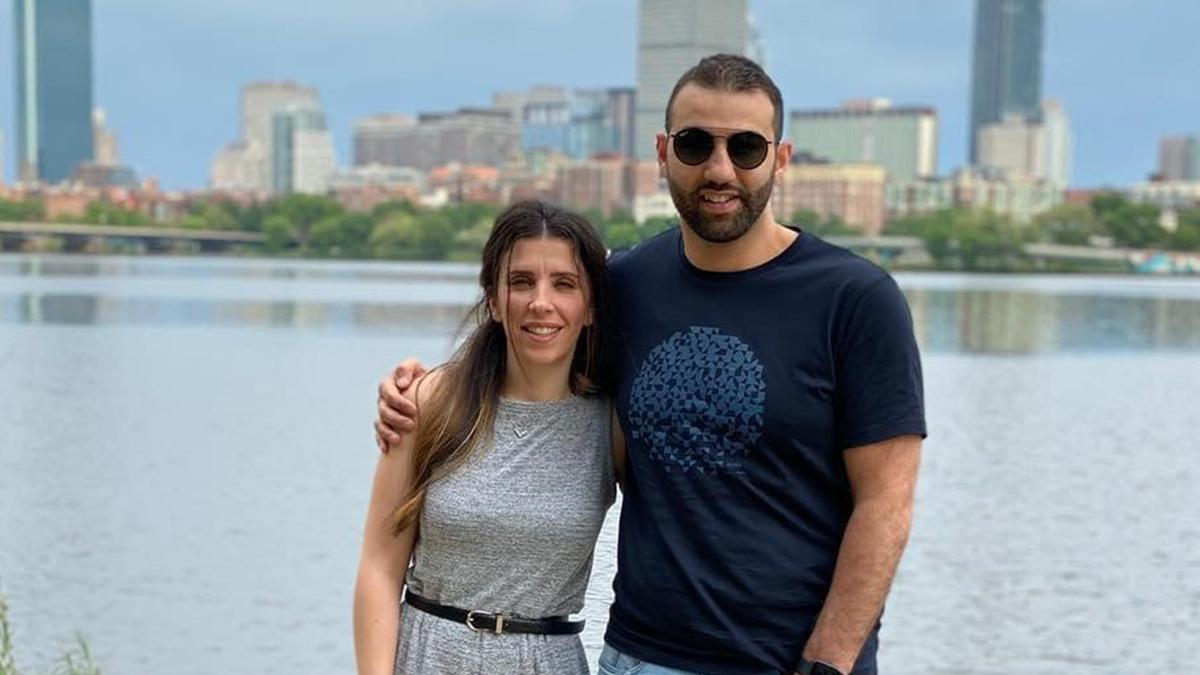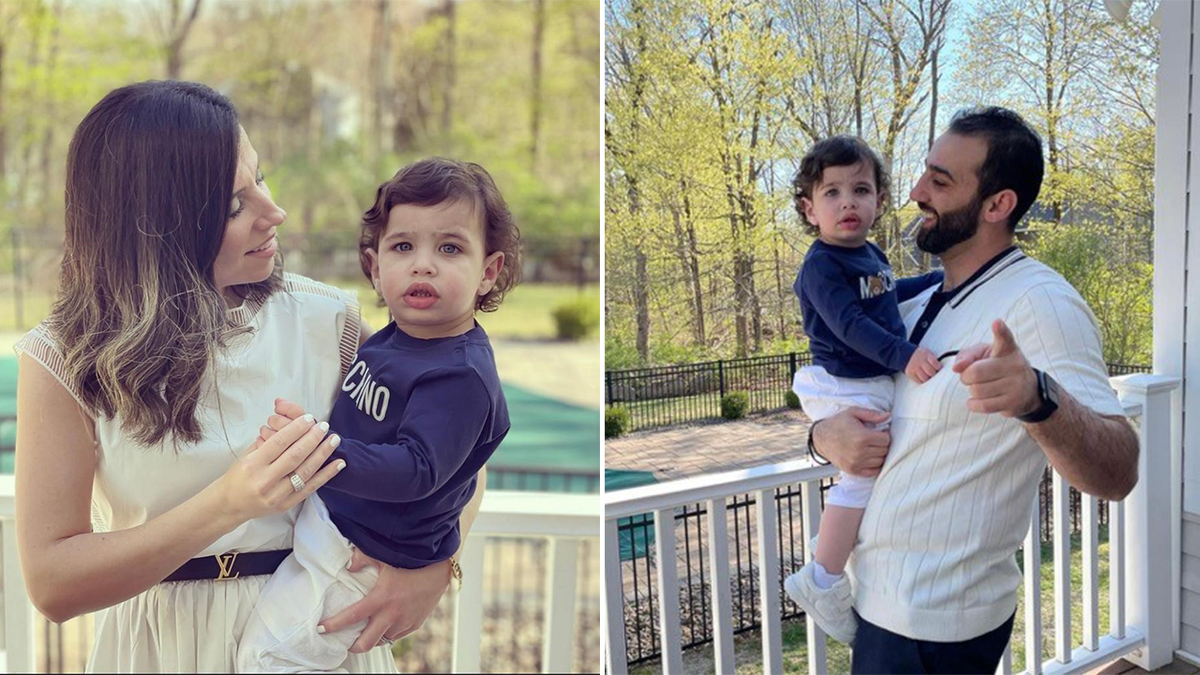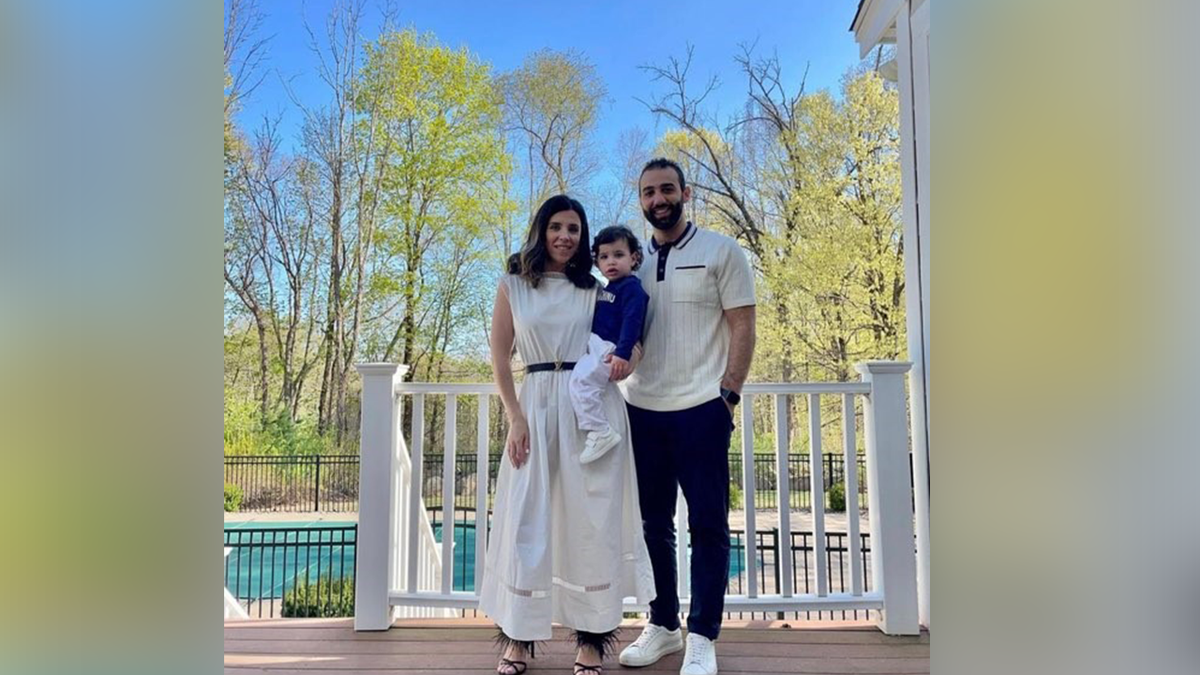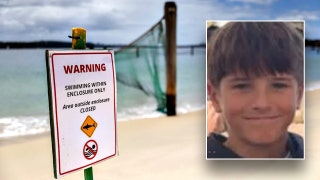Attorney for Massachusetts family stranded in Gaza explains their "dangerous and dire" situation.
Attorney Sammy Nabulsi says the family's circumstances continue to worsen each day they remain in Gaza.
The Massachusetts family stranded in Gaza amid the ongoing war between Israeli forces and Hamas terrorists said they continue to struggle to access drinking water, fuel and other resources and are hoping for safety as they await updates from the U.S. government about a possible exit plan.
Abood Okal, Wafa Abuzayda and their 1-year-old son, Yousef, were visiting family in Gaza when Hamas launched its largest attack against Israel on Oct. 7. The family has been in the region since late September, and had intended to return home to Medway, Massachusetts, on Oct. 13 before the violence delayed their plans.
In an audio recording obtained by Fox News Digital, Okal explained that the family ran out of drinking water on Sunday and that a nearby desalination station had run out of fuel needed to power generators. He said they have been roaming the main roads and streets in Rafah City, where they are staying in a single-family home with 40 other people including his sister Haneen and her three kids, in search of trucks or carriages carrying tanks of 1,000 or 2,000 liters of drinking water. Haneen and her children are also Americans.
"We stood in line, I think it was for maybe about two hours, to fill one gallon. They tried to limit the portions, so ours was a gallon. And we're hoping that would last us for the rest of the day today and for most of tomorrow until we could find another place to get drinking water from," Okal said in the recording created on Monday.

Abood Okal (right), who is stranded with his family in Gaza, said access to drinking water, fuel and other resources remains a challenge. (Courtesy of Sammy Nabulsi)
Connectivity in Gaza was increasingly difficult over the weekend after cellular and internet service was cut for much of the region starting on Friday amid a heavy Israeli bombardment. Service was not easy for the family to reach even before then due to reliance on solar-powered battery packs for their phones, but friends back home in Massachusetts had still been able to reach them several times a day. After service was cut, friends could only reach the family about once a day.
Internet and phone service began gradually returning to Gaza on Sunday, making for better access to Okal and his family, although connectivity remains a huge challenge. U.S. officials said they had pressured Israel to restore communications to the region.
Okal also explained in the audio recording that there was an increase in artillery shelling on Monday as the war between Israel and Hamas continues, now more than three weeks after Hamas launched its attack. Israeli forces have responded with strikes of their own and recently began a ground offensive into Gaza.
"Near the eastern side of the city where we're staying, every once in a while we would hear heavy caliber gunfire that we believe is fired from tanks," he said. "And our biggest fear now is that the ground invasion is imminent near the neighborhoods where we are because we've heard of the reports of both intense artillery shelling, as well as gunfire exchanges, as an invasion is happening or right preceding an invasion. And that's basically what's been happening in northern Gaza."
Tanks have also been rolling into Central Gaza for some time, Okal said. He emphasized that despite the military violence in the region, the family's primary concern is their safety.
"We're staying hopeful that tonight will be another safe night for us," he said. "At this point, we don't care much about how intense the bombing is as long as we come out alive in the morning."
Okal said that his family has been in contact with the State Department since the violence began but has not received an update recently regarding an exit plan to depart Gaza.
The State Department organized charter flights from Ben Gurion International Airport in Israel and chartered cruise ships to evacuate Americans from the ongoing violence in the Jewish State, but people stranded in Gaza had not had an opportunity to leave. On Wednesday, foreign passport holders and some critically injured civilians are expected to be allowed to leave Gaza after Qatar mediated an agreement between Egypt, Hamas and Israel in coordination with the U.S. to open the Rafah Crossing that leads to Egypt. It is unclear how long the crossing will remain open for evacuation.

The family said they ran out of drinking water on Sunday. (Courtesy of Sammy Nabulsi)
A spokesperson for the State Department told Fox News Digital that securing passage through the Rafah Crossing is complicated since one side is controlled by Hamas. But, the spokesperson said, the department has no higher priority than assisting U.S. citizens, including those in Gaza.
The spokesperson said Hamas has, at times, prevented people from approaching the Rafah Crossing, but the family's attorney Sammy Nabulsi told Fox News Digital that he has heard differently from people on the ground and from his private communications with the State Department.
According to the spokesperson, the State Department continues to work urgently with Egypt, Israel and the United Nations to facilitate the ability for U.S. citizens and their families to safely leave Gaza and travel through Egypt to their final destinations.
The security environment in Gaza is distinct from the security environment in Israel, making it harder to facilitate safe passage for Americans stuck in Gaza than it is to evacuate Americans from Israel, the spokesperson said, adding that the State Department remains in contact with U.S. citizens in Gaza.
"We're hoping that a resolution will take place as soon as possible," Okal said in the recording on Monday. "Again, it's been 24 days, and we've been in touch with the State Department since day one, a few hours into the war. And our frustration continues and builds up every day that we're still stranded here and risk our lives."
"I'm still staying in the same house with my wife Wafa, my son Yousef, my sister Haneen and her three kids," he continued. "All are Americans. And along with 40 other people in total, ten Americans are in the same house and managing to stay safe so far and trying to secure resources for our day-to-day."

The family's primary concern as they are stuck in Gaza is staying safe, Abood Okal said. (Courtesy of Sammy Nabulsi)
CLICK HERE TO GET THE FOX NEWS APP
Earlier this month, President Biden announced a deal to deliver humanitarian aid to Gaza. Shortly after the announcement, Egypt, Israel and the United Nations facilitated a 20-truck convoy carrying humanitarian assistance through the Rafah Crossing. The State Department spokesperson said officials are continuing to work on delivering additional aid to Gaza.
However, the agreement to deliver aid to Gaza did not include helping any Americans leave the region. The State Department has previously estimated that as many as 600 Americans could be in Gaza.
As many as 9,700 people have been killed on both sides of the war since Hamas launched its largest attack on the Jewish State in decades on Oct. 7, prompting retaliatory action from Israeli forces. The death toll in Israel includes at least 1,400 Israeli civilians and soldiers and 33 Americans. The Hamas-run Gaza Health Ministry says more than 8,000 Palestinians have been killed in Gaza and 110 in the West Bank. Thousands more have been wounded, and many others have been taken hostage by Hamas and raped, tortured and murdered.









































